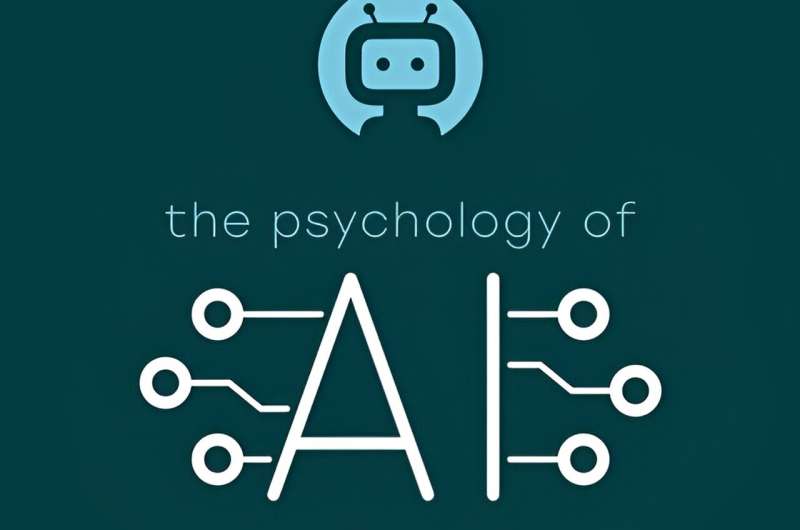This article has been reviewed according to Science X's editorial process and policies. Editors have highlighted the following attributes while ensuring the content's credibility:
fact-checked
trusted source
proofread
Artificial intelligence could alleviate loneliness, says expert

Artificial Intelligence (AI) technology could offer companionship to lonely people amid an international epidemic of loneliness, says a robotics expert.
Tony Prescott, a professor of cognitive robotics at the University of Sheffield, argues in his new book "The Psychology of Artificial Intelligence" that "relationships with AIs could support people" with forms of social interaction.
Loneliness has been found to seriously impair human health, and Professor Prescott makes a case that advances in AI technology could offer a partial solution.
He argues that people can spiral into loneliness, becoming increasingly disconnected as their confidence plummets, and that AI might help people to "break the cycle" by giving them a way to practice and improve their social skills.
The impact of loneliness
Loneliness—or social disconnection—is more harmful to human health than obesity, according to a 2023 report. A 2015 study showed it can increase the risk of premature death by 26% and is associated with a greater risk of cardiovascular disease, dementia, stroke, depression and anxiety.
The extent of the problem is striking: In the U.K. 3.8 million people are experiencing chronic loneliness. A Harvard study in the U.S. found that 36% of US adults—and 61% of young adults—experience serious loneliness.
Professor Prescott says, "In an age when many people describe their lives as lonely, there may be value in having AI companionship as a form of reciprocal social interaction that is stimulating and personalized. Human loneliness is often characterized by a downward spiral in which isolation leads to lower self-esteem, which discourages further interaction with people.
"There may be ways in which AI companionship could help break this cycle by scaffolding feelings of self-worth and helping maintain or improve social skills. If so, relationships with AIs could support people to find companionship with both human and artificial others."
He does suggest this is not without risk, however, as it could be "designed to encourage users to interact for longer and longer periods and to keep them coming back," and suggests regulation may be needed.
AI and the human brain
Prescott is a leading expert on the relationship between the human brain and AI, combining expertise in robotics and AI with psychology and philosophy. He contributes to the scientific understanding of the human condition by researching the re-creation of perception, memory, and emotion in synthetic entities.
As well as researching and teaching cognitive robotics at the University of Sheffield, Prescott is also the co-founder of Sheffield Robotics, which is a hub for robotics research.
In "The Psychology of Artificial Intelligence," Prescott explores the nature of the human mind and its cognitive processes and compares and contrasts this with the way AI is developing.
The book explores questions including:
- Are computers really like brains?
- Will AI surpass humans?
- Does AI have the ability to be creative?
- Would giving AI a robotic body enable it to create new types of intelligence?
- Could AI help us tackle climate change?
- And could humans "piggyback" on AI to extend their own intelligence?
He concludes, "As psychology and AI proceed, this partnership should unlock further insights into both natural and artificial intelligence. This could help answer some key questions about what it means to be human and for humans to live alongside AI."
More information: Tony Prescott, The Psychology of Artificial Intelligence (2024). DOI: 10.4324/9781003088660





















